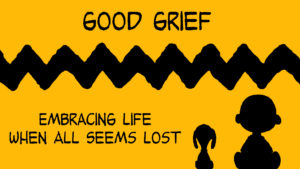Table of Contents
We need rest.
Sometimes, I think we Americans hope for tragedy. Not a middling tragedy of a school shooting, but a big real one like 9/11. We hope for this tragedy because it is the only time we stop. We stop because the tragedy has brought us such a profound amount of grief we have no other choice. So, it shouldn’t surprise you if you do stop and rest by choice, then grief will find you. Sabbath, the intentional stop and rest, brings us to places we don’t want to go and have kept long buried. Grief finds us when we Sabbath.
Last week, we did a deep dive into Sabbath. We talked about many of the benefits and how to design a Sabbath in your life, a place hospitable to God. The dive into Sabbath wrapped up the hospitality series and now it leads us into the under-explored area of grief. Because grief is something we only have time for when we rest.
To be clear, I am no grief counselor nor an expert on tragedy. I have little experience with personal trauma and tragedy on the scale of a lost spouse, child, or another immediate family member. I have not had to deal with the fear of a school shooting, bombing or terror attack. Because of my inexperience, this series on grief will not focus on the larger more sudden traumas and tragedies of life. Rather it will focus on the little things. The common things that most of us just shrug off. However, those little things become big things when we allow them to pile up. The place where grief finds you most easily is the first line of defense against these tiny injuries.

Recovering From the Injuries
There were a few ways to take this series, but after some consideration, it seemed best to start with the simplest solution, rest.
Part of Sabbath is doing nothing. When you do nothing, your mind has time and energy to do two things: 1. Process the past. 2. Plan for the Future. Doing nothing is simply not enough to occupy the mind in the present. Through these two things, grief and hope find in a stepwise fashion. Grief comes then hope prevails. If it is the other way, then you will never properly grief and thus miss out on this vital human experience. After all, Jesus came to give us life to the full. Life is full of both hope and grief. Skipping out on either of those is disobedient in my opinion. So let’s explore the two things coming at us in rest, the past and future.
Process the Past
There are two things to process from the past that I can tell. There may be more, but these two categories can show us how to find and use the rest to heal. The first is self-inflicted wounds and the second is the stuff that happens to us.
Self-Inflicted
The past is always creeping up on us. We are reminded by all those unfulfilled dreams, expectations, hopes, and regrets how small we are. We are reminded that it was through the strength of others that we stand here today. There is little more insulting to the ego of an individual than knowing that you didn’t earn what you have. It is the product of your culture and the generations that came before you. Sabbath calls you to this humility through grief.
You have the time to reflect on all that everyone has given so that you can be here, reading this little article on a phone or computer. It makes me feel small and grateful. It makes me sad. I am not as big or powerful as I thought. I do not affect the tides of history in the ways I wish. The death of self constantly pushes at you when you rest. What are you to do? You can either be active and refuse to rest constantly running from that grief, or you can seek the rest and enjoy the humility. You can lean into the freedom that this grief can bring.
The freedom of stopping because the world doesn’t spin on you. There is no need to grope for things you can’t handle; be faithful with what you have. Like the child who burns himself/herself on the stove. We too often try to grasp too much, too high, and too fast. When we do this, we hurt ourselves and others. Do we learn about our abilities from our grief, or do we push it down and keep moving causing mayhem in our wake?
What are you to do? You can either be active and refuse to rest constantly running from that grief, or you can seek the rest and enjoy the humility. Share on XForced Pain
Stuff happens that you can’t control. That is a different type of grieving the past than the self-inflicted wounds. The self-inflicted wounds were in your control and you failed yourself. Outside of your control brings its own problems and peace. The peace comes in knowing that it wasn’t your fault. There wasn’t something you could have done, and it happened to you, not because of you. The hard part is the fear of control loss. Realizing you lack the control to impact things in your life has grief all unto its own.
We mourn the things taken from us. Remember these are small things that add up. The friend who leaves without talking to you about it or the hateful thing spit at you from social media. The opportunity for promotion that you didn’t get because the boss went a different way. It could be something that happens naturally like a child growing up. They don’t stay little forever. Life moves on and things happen to us and there is little we can do to change the outcome. Sometimes we just have to accept the hand we have been dealt and play to the best of our ability. Be faithful with what you have.
On Your Terms
Regardless, the past catches up with you and it gets you when you least expect it unless you rest. Then you meet the past on your terms, in your way. You get to choose how to process. Sometimes that means mourning. Sometimes that means an autopsy to learn how to do better. The important thing to do is to process before everything builds up and the past comes to find you rather than you finding it.
These hurts are little, but they add up. Over-time life just loses some of its color. It becomes a little grayer, almost imperceptibly so and its because deep down you are sad but you never deal with it. Share on XThe Future Pain
I have found that the past is painful, but the future is frightening. When we plan for the future, we take stock of all our resources: people, knowledge, skills, things, and experiences. All those past ideas shapes and re-shapes our future. We may be good at confronting the past, but constructing a new future is hard when a loss happens. You have to re-imagine your whole life. Losing all those wonderful possibilities. The people, places and things change radically and rapidly and painfully. There is so much lost in this new vision of life. It hurts. Success, goals, and lifestyle have to change painfully to confront the new reality of the future. The future is coming.
So will you step out to meet the future? Will you shape it or will it shape you? When you rest and process the past and decide where to go in the future, you shape the future. That is a comforting feeling, but the real comfort comes in resting because we rebuild ourselves in rest.
Remember Sabbath is not always a solo activity. You get to invite people into your future. That allows for the replacement of the lost. It also allows us to construct a better, more thoughtful, and possibly less painful future. With the input of trusted advisors.
Meeting Grief
In the Harry Potter books, we are told a parable of three brothers. One died for power, and another died for love. The last was wise and concerned himself with neither, but instead concerned himself with rest. In the end, he greeted death as a friend. One he knew well because he had spent his life with him gradually, never too quickly or slowly.

We can meet grief similarly.
The point I am trying to make is that we can enter that rest every week before tragedy strikes. We don’t need to wait for grief. We can invite it in at a natural point. Grief finds us when we Sabbath, and at first we go to the future or past, then the opposite, but finally we return to the present. The present becomes much sweeter. We live better lives. Grief has a funny way of working us into humility the present. It takes time to get there, but when we do if we really travel through the grief then we can appreciate something deeper and more vivid.
Last week, I told you about how at first you spend your week for the Sabbath. It requires thought, preparation, reflection, and a whole bunch of other things just to set up. However, once you set it up, Sabbath helps you spend your week. Sabbath spills out life, depth, and hope into your week because you have rested and probably grieved a little.
The grief doesn’t have to be some huge tragedy, but the fact that your son doesn’t need you to go to the bathroom (Hallelujah) or that your daughter finally nailed that dance move you have been working on or that you didn’t get the promotion you were hoping for. These hurts are little, but they add up. Over-time life just loses some of its color. It becomes a little grayer, almost imperceptibly so and its because deep down you are sad but you never deal with it. You never rest to allow the pain to surface, and those bright colors of youthful hope have faded.
Grief is good and healing when we invite it in every week. Not to mope around all week but when we actually process all that hurt and pain by resting. Then we can move from grief to hope, and hope has all the brightest colors.
Sabbath spills out life, depth, and hope into your week because you have rested and probably grieved a little. Share on XFinal Thoughts
I don’t know if you are grieving today. Many are. Respect their wishes and allow them to process. One of the hardest things for me to do is to not fix it. Grief can’t be fixed. It must be processed. It takes patience and time, and many other annoying things we Americans hate. If you are and would like to share, I would greatly appreciate your comments. If grief finds us when we Sabbath, then you are now a little better prepared for it. Lean in grief might actually be what brings the colors back into your life when you re-imagine the future that you have so painfully lost. If you don’t want to re-imagine, I get it. Take your time.
Next week, I am going to get corny and talk about why we need to grieve our children growing up: the benefits and the process that I am currently using.
If this article was helpful, please share it on social media or with anyone who might need to hear this. Also, you can sign up to join my email community here.





